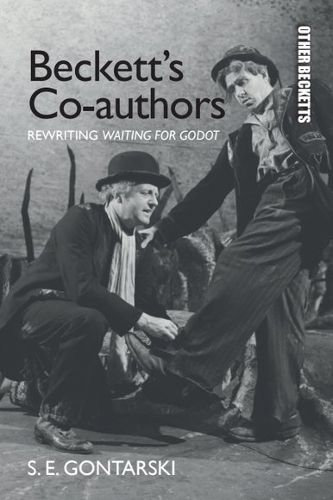Readings Newsletter
Become a Readings Member to make your shopping experience even easier.
Sign in or sign up for free!
You’re not far away from qualifying for FREE standard shipping within Australia
You’ve qualified for FREE standard shipping within Australia
The cart is loading…






Beckett's Co-authors takes a fresh look at Samuel Beckett and the business of authorship, especially his involvement in the complicated machinery of commercial theatre. Focusing particularly on Beckett's first professionally produced play, Waiting for Godot, and its premieres in the US, UK and the Republic of Ireland, this book examines extra-authorial interventions into the creative process and how such interventions challenges the autonomy of the author and his artwork. Calling the result of these early collaborations 'co-authorship', S. E. Gontarski delves into the hybrid genre of theatre where collective aesthetics tends to override and thus supersede individual creation, using the methodology of archival archaeology to uncover previously unpublished letters and unknown archival documents relating to three national premieres. These case studies nevertheless have implications far beyond a single theatrical work, placing a spotlight on the nature of authorship and the process of realising dramatic texts in a monetised culture.
$9.00 standard shipping within Australia
FREE standard shipping within Australia for orders over $100.00
Express & International shipping calculated at checkout
Beckett's Co-authors takes a fresh look at Samuel Beckett and the business of authorship, especially his involvement in the complicated machinery of commercial theatre. Focusing particularly on Beckett's first professionally produced play, Waiting for Godot, and its premieres in the US, UK and the Republic of Ireland, this book examines extra-authorial interventions into the creative process and how such interventions challenges the autonomy of the author and his artwork. Calling the result of these early collaborations 'co-authorship', S. E. Gontarski delves into the hybrid genre of theatre where collective aesthetics tends to override and thus supersede individual creation, using the methodology of archival archaeology to uncover previously unpublished letters and unknown archival documents relating to three national premieres. These case studies nevertheless have implications far beyond a single theatrical work, placing a spotlight on the nature of authorship and the process of realising dramatic texts in a monetised culture.